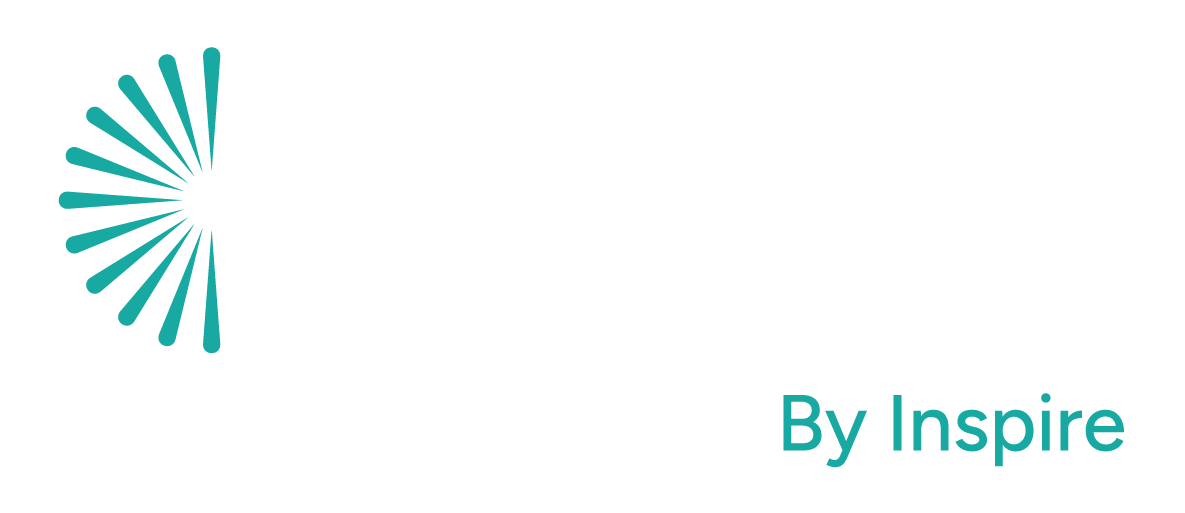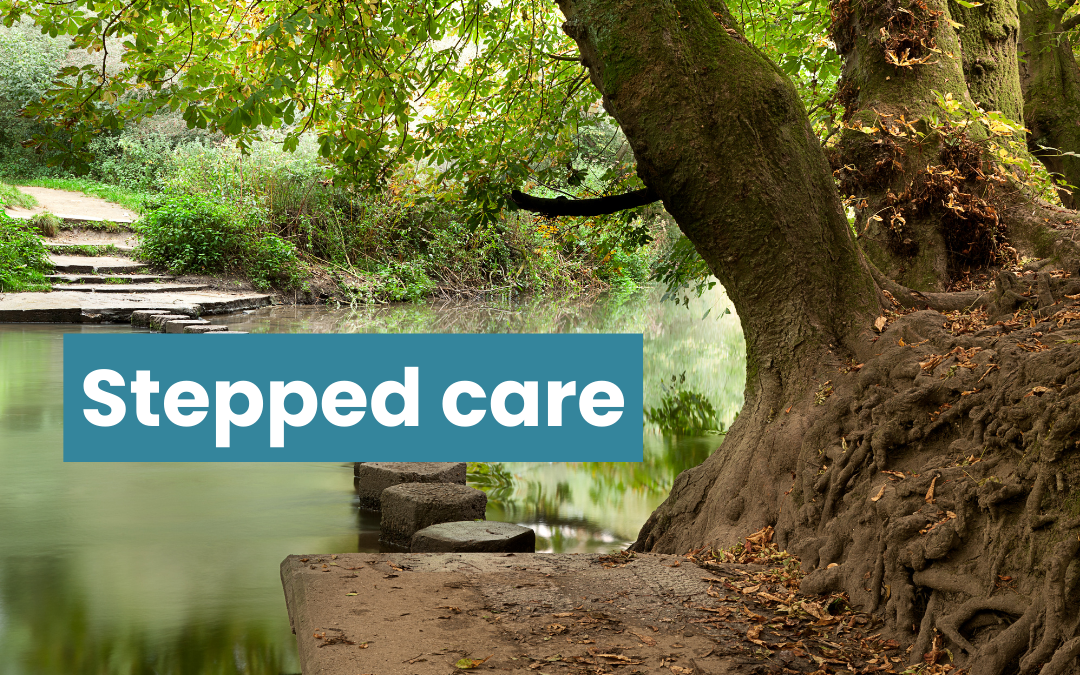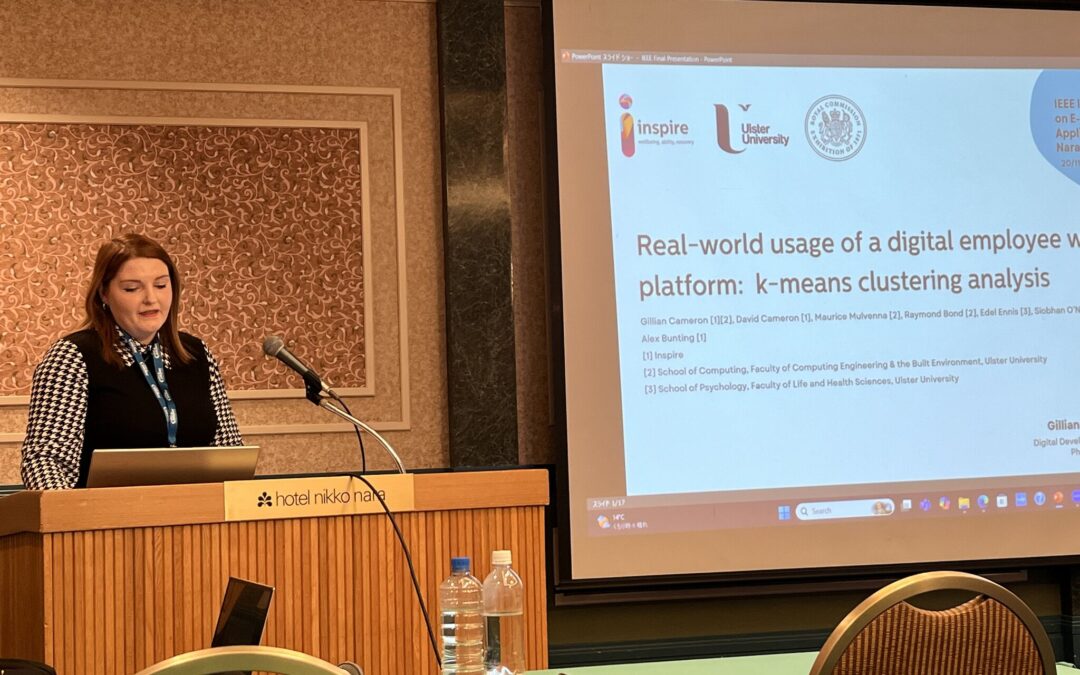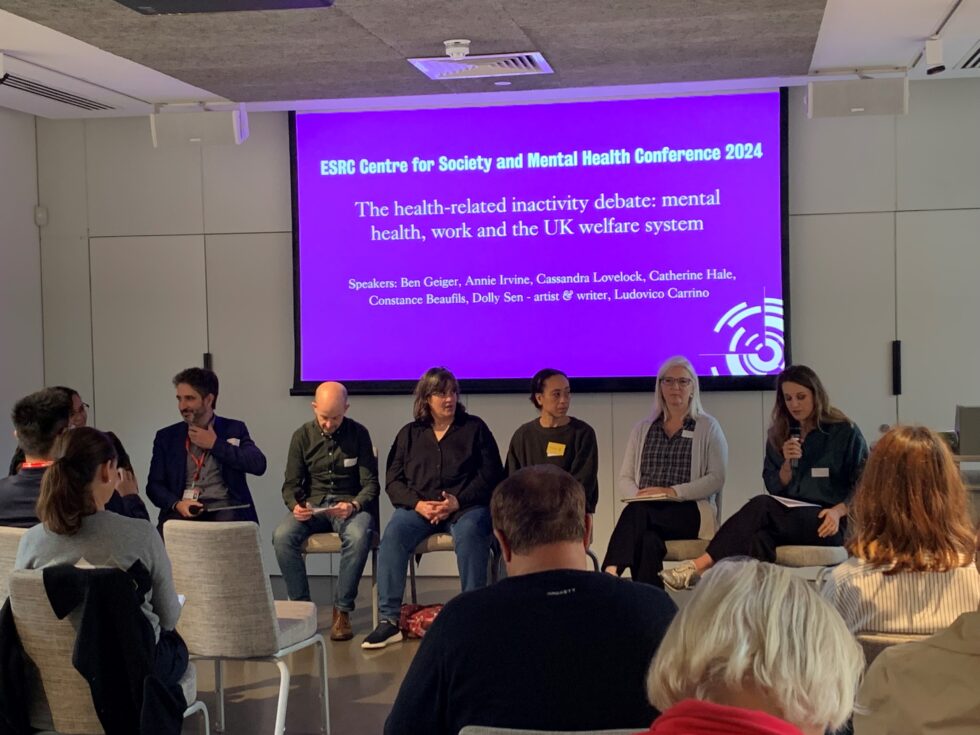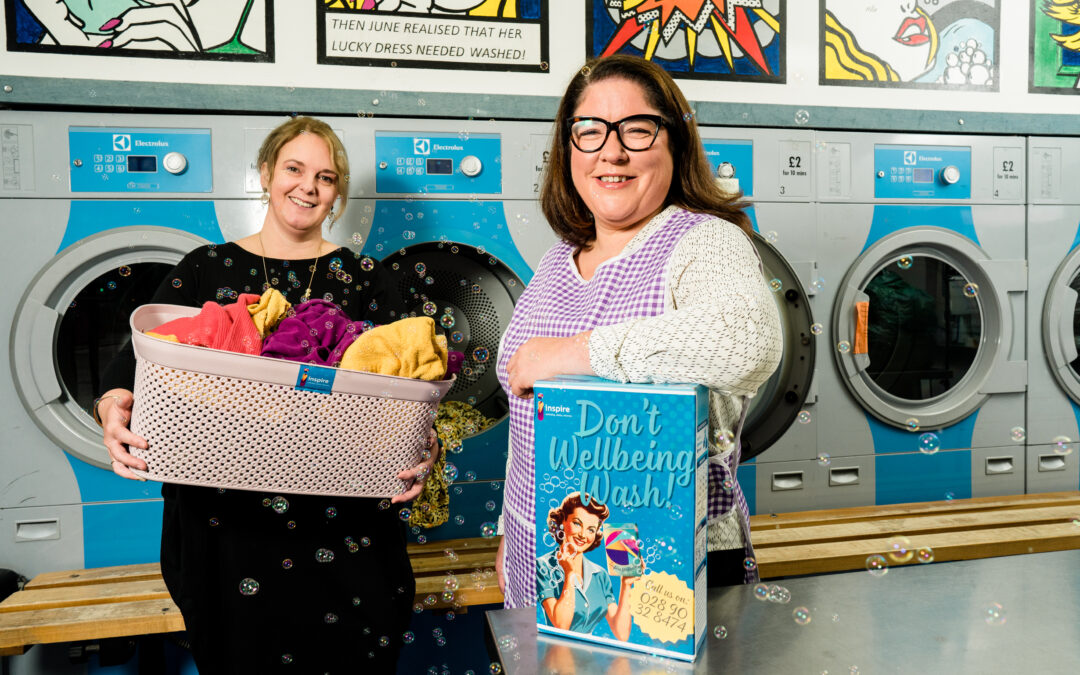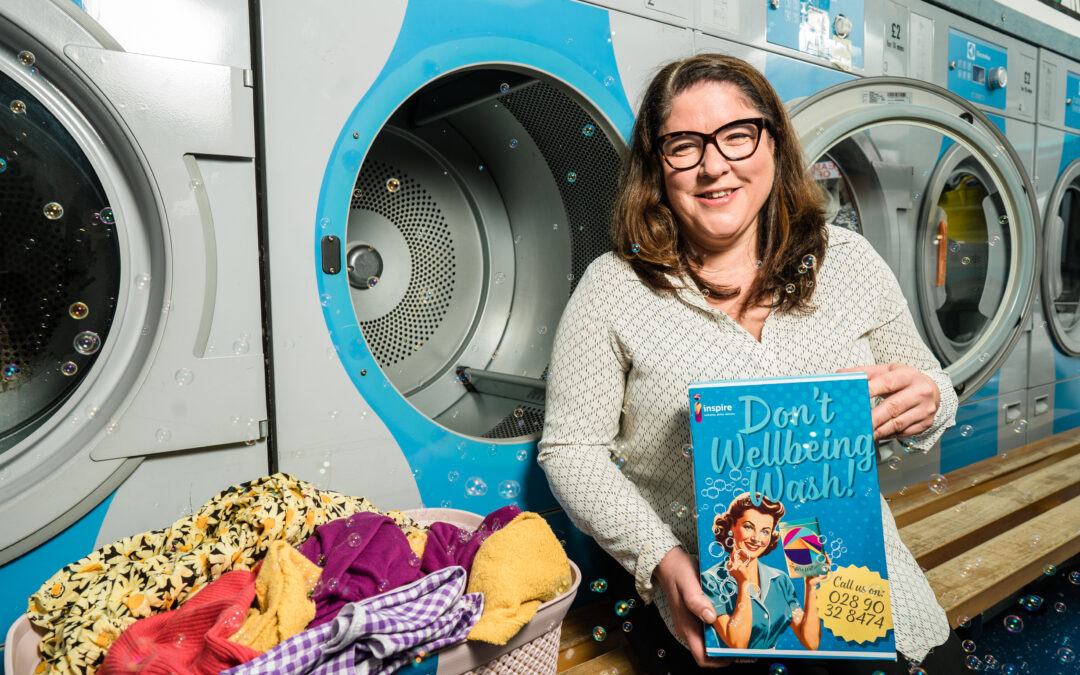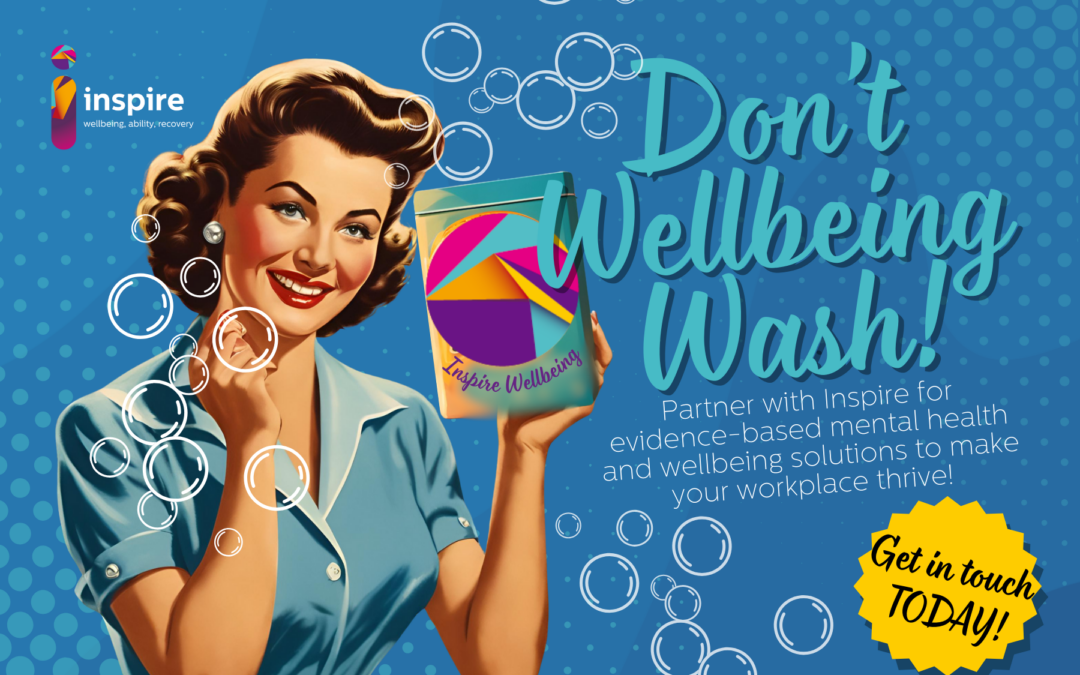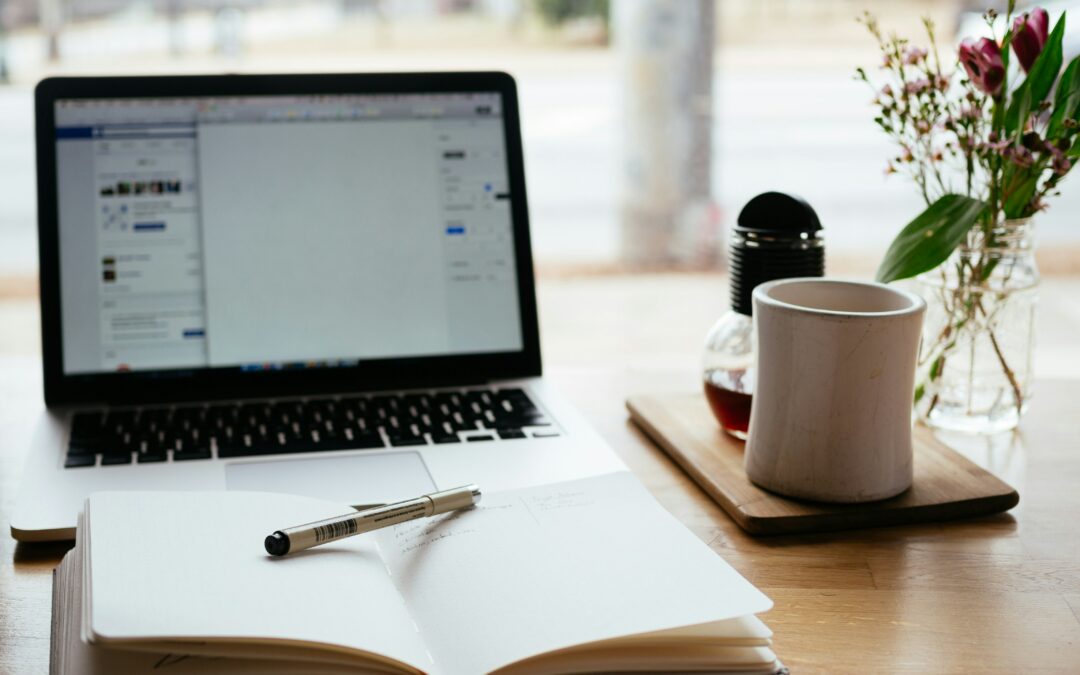Start as you mean to go on!
As we head into 2024, we want to highlight some key wellbeing tips, which you can reflect upon and then deploy as you meet a brand-new year in the best possible frame of mind.
Prioritise your health
If you want to clear your mind, induce a sense of calm and reduce stress, regular exercise and maintaining a balanced diet can make a big impact. Wrap up warm and get out and about to fill your lungs with fresh air. Even sitting next to an open window can give you a vital boost. If you can’t exercise, there are lots of emotional and physical benefits to be found in other activities such as volunteering or activities that encourage mindfulness (breathing techniques, stretching, arts and crafts, reading and journalling). Make these central elements of your dedicated self-care routine.
The Inspire Support Hub hosts a variety of materials relating to physical health. From advice on healthy habits to our guidelines around accessible exercise, the Hub is full of excellent content.
Close it down, shut it off
Technology is everywhere and it allows us to be connected to work, colleagues, friends – and the world at large – all day, every day. But so much accessibility can also create unhealthy habits and also unsociable working hours and practices. Once you clock off, that’s your time. Close your laptop, put the work phone away and switch off. This is especially true if you are doing your job from home, where boundaries can easily become blurred. Head over to the Inspire Support Hub to read more about remote working, work and parenting and how to maintain a work-life balance.
Even when your job is not computer based, spending excessive time on digital devices can impact on your relationships, mental health and sleep. Over the festive period and then on into the New Year, aim to set yourself a daily tech time-out, so that you can be present around family and friends – or simply for some ‘me’ time.
Get some sleep
Sleep is a fundamental part of our physical and emotional wellbeing. When we sleep, our bodies and brains rest, recuperate and recharge. Sleep is also one of the most important components of day-to-day happiness. A good bedtime routine – one which allows us to grab at least eight hours of rest per night – sharpens focus and concentration, mood and the immune system, keeping us in top form and more able to deal with life’s challenges.
Sleep hygiene is a key component of our mental health. The Inspire Support Hub is home to a mood and sleep tracker. This is an excellent way of gauging how we’re feeling and how we’re sleeping – two things that are closely aligned.
Wellbeing Calendar – Key Dates in January
Dry January (UK) Drink Less January (Ire)
This coming January why not try to go alcohol-free or reduce your alcohol intake – giving your body a break from alcohol can have a positive impact – on your physical health, your mental wellbeing – and your wallet!
The Inspire Support Hub features our Alcohol and Me self-help guide which will help get you thinking about the things you can do to reduce your consumptions levels. The Hub also has an excellent mood tracker, which you can use to gauge how you’re feeling day to day – this can be used in conjunction with the Hub’s goal tracker as to map out how you are doing against your Dry or Drink Less January goals.
Our Wellbeing Team can provide Alcohol Awareness Webinars where participants learn about:
- the short-term and long-term effects of alcohol on their health.
- how to make informed decisions about alcohol consumption.
- resources available to help them reduce or eliminate their alcohol consumption.
If you would be interested in attending a session like this, please speak with your HR manager/Health and Wellbeing Lead to see if it’s something that can be facilitated within your workplace.
Ultimately, it’s about being mindful of your relationship with alcohol and its impact on your overall health and wellbeing. By giving your body a bit of a rest from alcohol for an entire month you are allowing it to recover from the stresses and excesses of the holiday season and setting yourself up for a healthy kick-start for year ahead.
Some external links you may find helpful for further information or for accessing resources:
https://alcoholchange.org.uk/help-and-support/managing-your-drinking/dry-january
www2.hse.ie/living-well/alcohol/health/improve-your-health/tips-for-drinking-less/
www.nhs.uk/better-health/drink-less/
https://drugsandalcoholni.info/campaigns/djfgf/
Blue Monday/Brew Monday – 15 January 2024
Blue Monday is the name given to a day in January (typically the third Monday of the month) said to be the most difficult day of the year. The concept was first published in a 2005 press release by a UK travel company on the back of research carried out by psychologist Cliff Arnall.
The theory goes that this is the time of year when we’re all a bit down or overwhelmed for a number of reasons such as the cold weather, the dark days and nights, feeling the post-holiday financial pinch, and perhaps struggling to maintain or live up to our New Year resolutions.
Whether Blue Monday really is the most depressing day of the year or a PR stunt/advertising opportunity as it would now seem – the date and day does give us all the opportunity to once again focus on mental health – and the importance of spending time with people and/or doing activities that make us feel less ‘blue.’
This year the Samaritans are encouraging everyone to celebrate Brew Monday rather than Blue Monday by asking us to reach out for a cuppa and a catch-up with those we care about.
They have produced a range of downloadable resources (posters, leaflets, digital slides, quizzes and tea party packs) and are also suggesting that organisations or groups of friends could host either virtual or in-person Brew Monday events. Why not get involved? Get the kettle on, pull up a chair, have a good old natter and show someone you care!
For more information visit: www.samaritans.org/support-us/campaign/brew-monday/
More from our blog
Menopause and work
The menopause is a natural biological process. It occurs when your ovaries age and naturally produce lower levels of reproductive hormones. The menopause may have a significant impact on home life and work performance. This can be unsettling, particularly if a particular role carries lots of responsibility. The hormonal changes…
Understanding Stepped Care and its role in workplace wellbeing
The stepped care model is a fundamental part of Inspire's workplace offering. So, what is it and why is it so important?
Winter wellbeing 2024
The festive season is here and we’re keen to highlight some wellbeing tips for now and the New Year. Head into 2025 in the best possible frame of mind. Switch off Technology allows us to be constantly connected to colleagues, family and friends. That is often a good thing but…
Reflections on IEEE eHealthCom 2024: Insights, Innovation, and Inspiration in Nara, Japan
Inspire’s Digital Development Lead, Gillian Cameron, reflects on her recent trip to Nara, Japan for the IEEE eHealthCom conference. Last week, I had the privilege of attending and presenting at the IEEE eHealthCom 2024 conference in Nara, Japan. This annual event brings together researchers, industry leaders, and policymakers to discuss…
Mental Health on the Agenda at King’s College London
Inspire’s Policy & Campaigns Office, Matthew Coyle, reflects on his recent trip to King’s College London and the knowledge gained at the ESRC Centre for Society and Mental Health’s annual conference. I had the privilege earlier this month of attending the ESRC Centre for Society and Mental Health’s third annual conference in…
Healthy Organisations Commit to Person-Centred Wellbeing
Employment takes up a good deal of our time. According to the Office of National Statistics, the average UK worker spends over 36 hours in work every week; in Ireland, that figure is 38.5. On World Mental Health Day, understand the effect that wellbeing washing can have on workers and…
On World Mental Health Day, Here’s How to Avoid Wellbeing Washing
As we count down to World Mental Health Day on 10th October, Inspire’s focus is very much on our ‘Don’t Wellbeing Wash’ campaign. Wellbeing washing is similar to green washing, its arguably more infamous cousin. It describes a company or organisational ethos that focus more on the illusion of staff…
World Mental Health Day: Don’t Wellbeing Wash
World Mental Health Day (WMHD), which takes place every year on 10th October, offers us all an opportunity to gather and talk about mental health, demonstrating to everyone that this is a subject worthy of open, honest discussion and explanation. In 2024, Inspire is marking WMHD by highlighting the important issue…
Government Action on Work-Life Balance a Positive Sign
The UK Government has announced plans to introduce new codes of practice for businesses, which are aimed at tackling burnout and codifying a right to switch off. This follows on from Labour’s campaign pledge to empower workers, providing them with the freedom to disconnect from their jobs outside regular hours and…
Line Managers are Key to Workplace Wellbeing
According to new research published by Queen’s University Belfast and the University of Nottingham, strong links exist between positive business performance and mental health training for line managers. Furthermore, the analysis of workforce practices suggests that recognising this, and acting on it, could save organisations millions every year. The study…
Workplace Conflicts Require Proactive Approach
Discord between colleagues is not unusual. The average workplace brings together individuals from different walks of life, people with distinct characteristics, objectives, points of view and ways of doing things. Quarrels are bound to develop from time to time. They can, however, have a significant impact on an organisation’s productivity,…
CIPD Conference Stresses Authentic, Empathetic Leadership
Inspire\'s Noelle Higgins, Business Development Manager – Therapeutic Services reflects on the recent CIPD conference and research. My colleague Jonathan Cody and I recently took the opportunity to head to the CIPD conference at the RDS, enjoying a day away from our e-mails and catching up with a range of…
